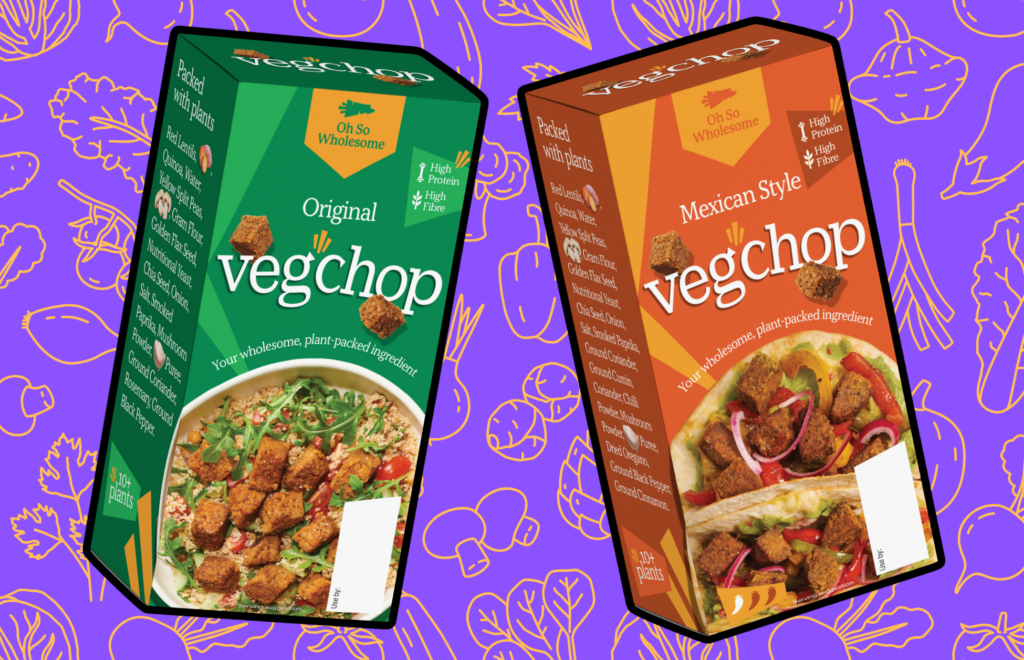
As nutritionists and gut health experts encourage consumers to eat 30 different plants a week, counting ‘plant points’ could be an effective nudge to get people to transition to plant-forward diets.
There’s a reason why Japan has one of the highest life expectancies in the world – and it has to do with diversity.
Diversity, that is, in ingredients. Research conducted by Tsuduki Tsuyoshi, an associate food and molecular bioscience professor at Tohoku University, has found that the secret to Japan’s longevity is in the “large number of small dishes” and a diet rich in soy products, tubers, fresh and pickled vegetables, fruits, seafood and seaweed, mushrooms, and tea.
“The traditional formula for a basic Japanese meal – ‘soup and three’ – helps to guarantee dietary variety,” writes Tsuduki. “In practice, this generally means one main dish (frequently fish or another protein) and two side dishes (often vegetables), in addition to rice and soup.”
It’s why food journalist Michael Pollan’s adage stands the test of time. “Eat food. Not too much. Mostly plants,” he wrote 18 years ago in his seminal book In Defense of Food: An Eater’s Manifesto.
The idea that the optimal diet should be made up of mostly plants and as many different plants as possible has been gaining steam of late, with concepts like ‘plant points’ and ’30 plants a week’ become more mainstream.
The ’30 plants a week’ mantra encourages people to eat 30 different plant-based foods each week. To be clear, diversity is the game here.
UK plant-based food brand Gosh!, for example, recently jumped on the trend, refreshing its packaging to highlight the number of plant points in each of its products. Take the brand’s Caponata Burger: it boasts a whopping 8 plant points, thanks to a variety of plant ingredients including aubergine, courgette, thyme and chilli.

Why you should be eating 30 plants a week
Eating a variety of plant foods on a regular basis boosts your gut microbiome, which has become a prominent health goal for many consumers over the last couple of years, popularised by the rise of GLP-1 agonist drugs like Ozempic, documentaries like Hack Your Health, and research that shows just how much gut health is central to overall wellbeing.
While the Japanese have been practising plant-forward diet diversity for centuries, the more recent trend of eating 30 plants a week as a healthy habit emerged from a 2018 study by the American Gut Project that tracked 10,000 people. The study authors found that those who ate at least 30 plant-based foods weekly had a more diverse (read: healthier) gut microbiome than participants who consumed less than 10.
Subsequent research offers similar results. In January, a study of more than 21,500 people by UK personalised nutrition app Zoe, which analysed the participants’ stool samples, came to the same conclusion as the American Gut Health research: the more plants you eat, the greater the diversity of microbes in your gut.

“We found that a plant-rich diet, particularly one high in a variety of fruits and vegetables, leads to a healthier microbiome composition, which is important for better health outcomes in the long run, including a reduced risk of chronic diseases,” said Tim Spector, medical expert and Zoe’s foundera vocal who has been a longtime advocate for eating 30 plants a week.
Why is the diversity of microbes in your gut so important? There are a myriad health benefits. A healthy gut microbiome helps improve the immune system, protects against pathogens, strengthens the gut barrier, balances blood glucose levels, and lowers inflammation, among other benefits. By ingesting more plants, you’re also introducing more phytonutrients to your body, which have antioxidant and anti-inflammatory properties.
Low microbiota diversity, on the other hand, is linked to a host of health conditions, including obesity, diabetes, celiac disease, arthritis, and inflammatory bowel syndrome, to name a few.
Whole-food plant-based options on the rise
Eating 30 plants every week may seem like a tall order, but it’s much easier than one would think. This is because the 30 includes whole grains, vegetables, fruits, legumes, nuts, seeds, herbs and spices. It’s not just quinoa, oats, sweet potatoes, carrots and almonds; coffee, dark chocolate, tofu, and even paprika carry a plant point each, as do different colours of bell peppers.
It’s important to note that not all plant-derived ingredients count towards the 30. White bread, pasta or rice are all stripped of the fibre-rich bran, so these refined foods don’t represent plant points. However, whole-grain versions of these same foods do – so the trick is to stick with whole foods.

This is why brands are now developing products that focus on whole-food plant-based nutrition. In the UK, Oh So Wholesome’s Veg’chop line is a fibre-packed protein made from red lentils, quinoa, yellow split peas, mushrooms, and more, boasting over 10 plants per pack. Even meat alternative brand THIS has launched Super Superfood, packing fava beans, mushrooms, spinach and a range of seeds into a plant protein block to rival tofu and tempeh.
This philosophy has informed Gosh! too, which is imploring consumers to move past the National Health Service’s five-a-day philosophy and focus on 30-a-week instead. The company claims it helped the UK rack up 30 million plant points last year.
“With our new redesign, we’ve made tracking it easier than ever as part of our commitment to make plant-based eating accessible for everyone,” said marketing director Caroline Hughes.
Taking inspiration from the Weight Watchers point system

Could it have the Weight Watchers effect? The world-famous weight-loss programme assigns a points value to ingredients, and uses a calculation based on a person’s weight, age and activity level to determine a Points Budget they can spend on food. The healthier a food, the fewer points it’ll have, while the healthiest ones (like fruits, vegetables and lean proteins) are deemed ZeroPoint Foods.
Tech-forward solutions and GLP-1 drugs have pushed the company to the brink of bankruptcy, but research has proven that the points system works, and WeightWatchers has been recognised by many experts as a genuinely helpful diet programme.
At its peak, the weight-loss facilitator had five million members all over the globe– and one of the reasons for its popularity was how easy it was to follow its points system. Breaking down something as complex as weight loss into easy-to-count numbers proved a winning strategy.
There are many ways for people to improve their diets, but it’s hard to beat counting plants in terms of simplicity. People following the 30 plants a week regime don’t need to eliminate or replace any particular foods; all they need to do is add some plants. The gamification of it all no doubt helps people stay motivated.
The move comes at a difficult time for the push towards plant-forward diets. While experts have long been banging the drum about shifting towards plant-rich eating for better human and planetary health, the needle hasn’t really moved.
meat and dairy, while 12% would like to increase their consumption.
Existing campaigns to get folks to shift their diets, from Meatless Mondays and Veganuary to celebrity-backed marketing drives, have proved lacklustre.
In the US, meat sales reached an all-time high in 2024, despite scientists advising the Department of Agriculture to prioritise plant proteins and advise cutting back on red and processed meat in the upcoming dietary guidelines. Today, only 22% of Americans want to eat less meat, a five-year low. Plant-based proteins – including tofu, tempeh, and meat and dairy alternatives – still only make up 1% of total retail food sales in the US.
In the UK, too, more youngsters are increasing their meat intake (19%) than reducing it (16%) – despite half of them acknowledging that it causes harm to the planet. And across Europe, less than one in five people (18%) avoid animal products. And moving forward, only a quarter would like to phase out meat and dairy, while 12% would like to increase their consumption.
However, coordinated campaigns can nudge positive behaviours. Take the Danish Whole Grain Partnership, a collaboration between the government, health organisations, and the food industry. Over a decade, their initiative increased the nation’s per capita whole grain consumption by over twofold in just a decade, leveraging annual awareness events (involving schools, hospitals and prisons alike), product reformulation, and supermarket discounts.
Denmark also established a national action plan for plant-based foods in 2023 and will begin taxing meat and dairy farmers from 2023, the goal being to diversify its protein sources and reach its climate goals.
Can labelling influence Brits to eat more plants?
Campaigns like Gosh!’s, which make it easy and fun to eat a variety of plants, could be another catalyst for change. The brand is hoping that putting the number of plants front-of-pack will make it even easier for consumers to keep count, all while helping to improve their health, as well as that of businesses and the planet alike.
Research by public health group NSF shows that while 76% of Brits read food labels before purchasing, only half feel current labels provide sufficient information to help them make healthy food choices. Interestingly, 60% of 18- to 34-year-olds find on-pack health claims trustworthy, though this falls to 25% among those over 55.
Meanwhile, nearly two-thirds (64%) of Brits are willing to pay an extra 10% for more sustainable packaged foods. And over half of them (53%) trust eco labels at least somewhat, according to YouGov polls in 2024.
This chimes with a 2023 study showing that 64% of UIK consumers would be deterred from purchasing meat if it had an eco score in the red, while 52% would consider buying a meat alternative if it had a better rating. Meanwhile, 58% said they’re interested in eco-labels, but require more information, highlighting the need for more education and awareness among consumers.
Another survey from 2022 showed that 73% of Brits felt it was important for food and drink to have low carbon footprints, while 49% wanted to see carbon footprint labelling on products.
Gosh! says it’s betting on its revamped packaging. “We believe eating more plants should be simple, delicious and make you feel good,” said Hughes. “This is why we’re championing ‘plant points’, helping consumers to easily add goodness to their plates.”
The post Could ‘Plant Points’ Be the Winning Way to Get People to Eat Less Meat? appeared first on Green Queen.
This post was originally published on Green Queen.